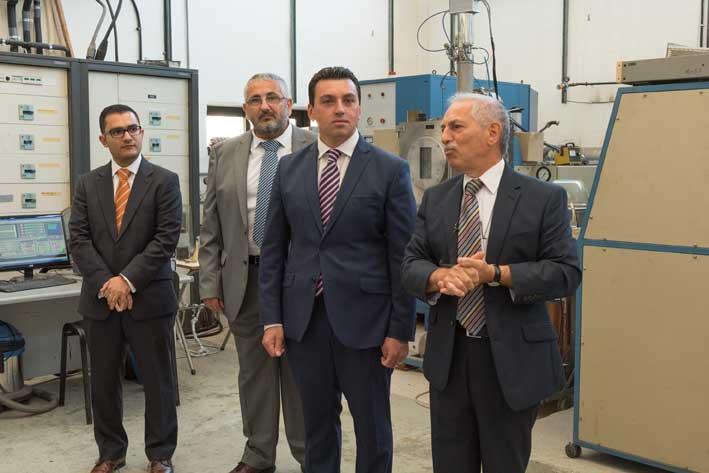The University of Malta is to lead an EU funded project which is projected to reduce Malta’s water consumption by about 24 to 30 per cent, incidentally the amount of water used for the flushing of toilets.
The project Micro WatTS is focuses on the treatment of greywater. This, being the relatively clean waste water from baths, sinks, washing machines and other kitchen appliances. The project is focuses on re-using this water for the flushing of toilets. Recycling of waste water is treated by using surfaces with specially developed coatings that deploy solar energy to kill the bacteria in the water.
The Micro WatTS project is co-financed by INTERREG V.A. Italia-Malta, and ranked first among over 80 proposals submitted to garner the EU funds. Under the Italia-Malt Programme 2014-2020, 15 projects have been selected for funding – comprising of a total of 32 Maltese beneficiaries, with funding provided amounting to €9 million.
Parliamentary Secretary for EU Funds and Social Dialogue Aaron Farrugia addressed the conference, highlighting how societies both in Malta and Italy will benefit from such research and innovation. Pointing out the aim of the project, and indeed all such projects, is the reinforcing of sustainable growth at the cross-border level, fostering competitiveness of SMEs and protection of environment.

Addressing the conference, University Rector Professor Alfred Vella underlined the inevitable increase of pressure for water availability, particularly due to the desertification process which is “on the run, not on the move.”
“It will be a matter of life and death to us – to be able to use water resources conservatively, and not waste any that can be recycled after suitable purification.”
Professor Maurice Grech is the project leader, supported by Dr Stephen Abela from the Department of Metallurgy and Materials and Dr Paul Refalo from the Department of Industrial and Manufacturing Engineering, and also by the Consiglio Nazionale delle Ricerche in Catania.

Grech emphasised that “the strength of this project is in the partnership”, with individuals working in their areas of expertise, and well within their comfort zone.
“Cross border collaboration at this level of research will really grant innovative products and services which in the long run will reduce both the water and carbon footprint. We will be making better use of our natural resources.”
The project is anticipated to take 3 years to complete and is likely to improve overall water consumption.
Video/photos Alenka Falzon